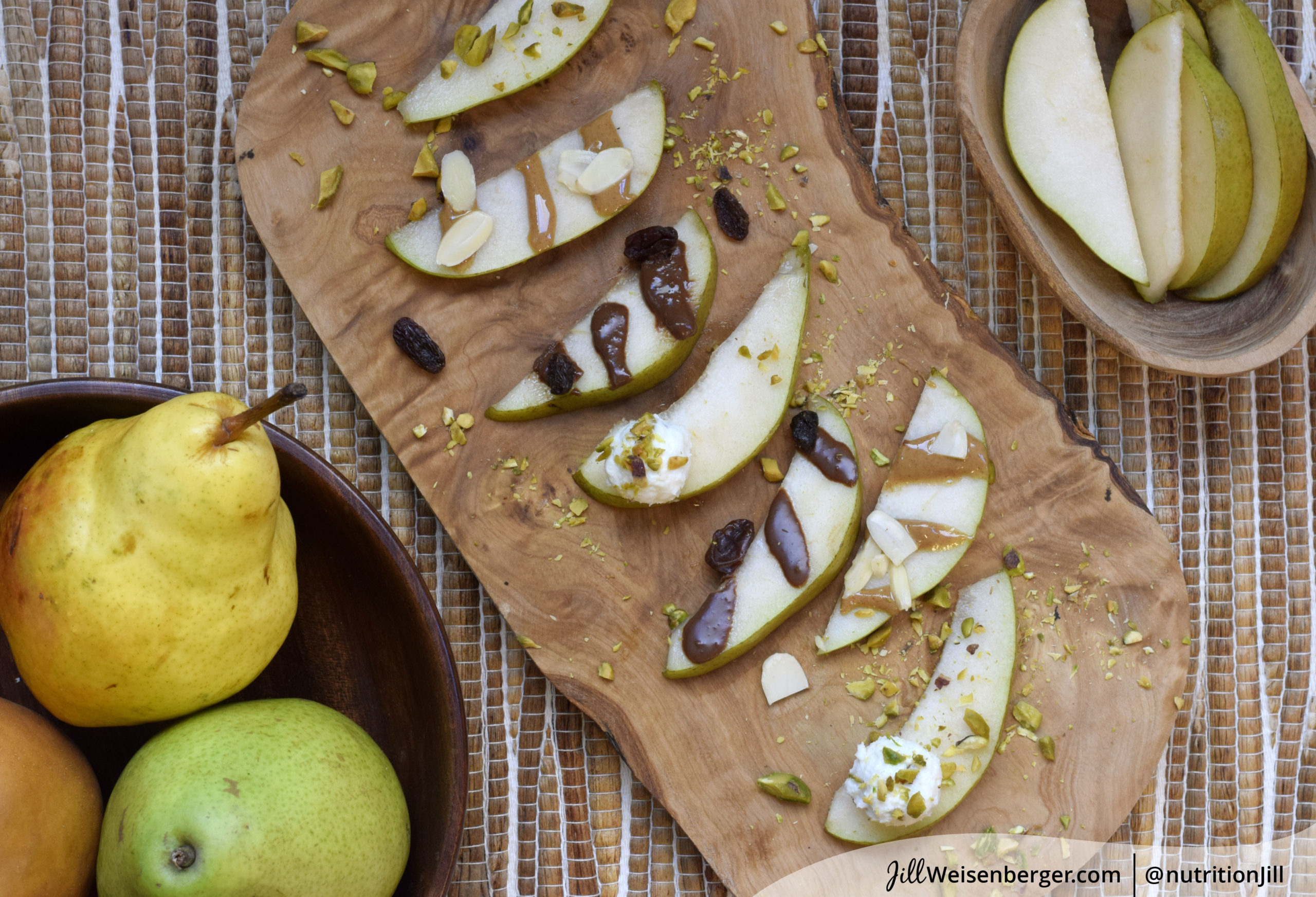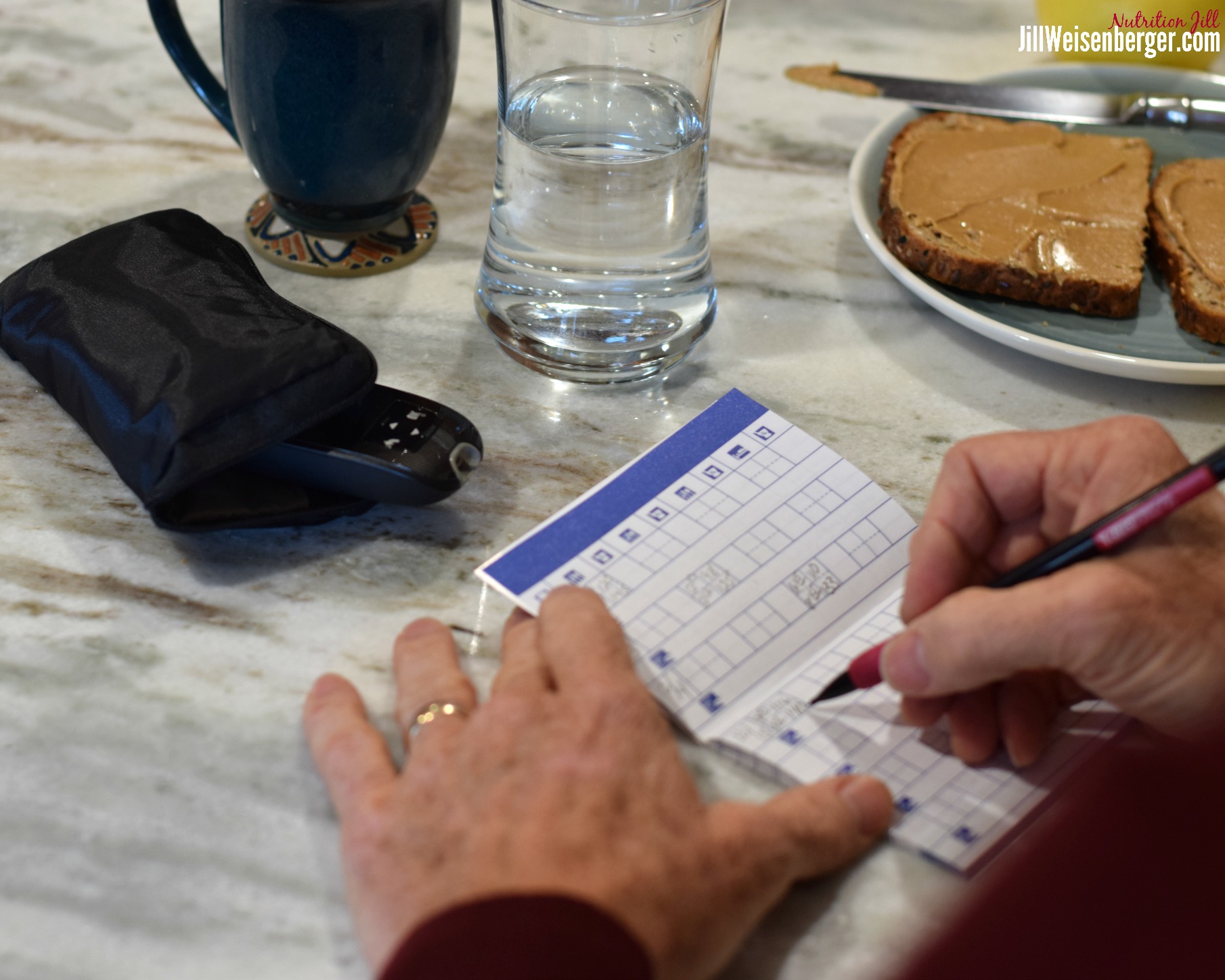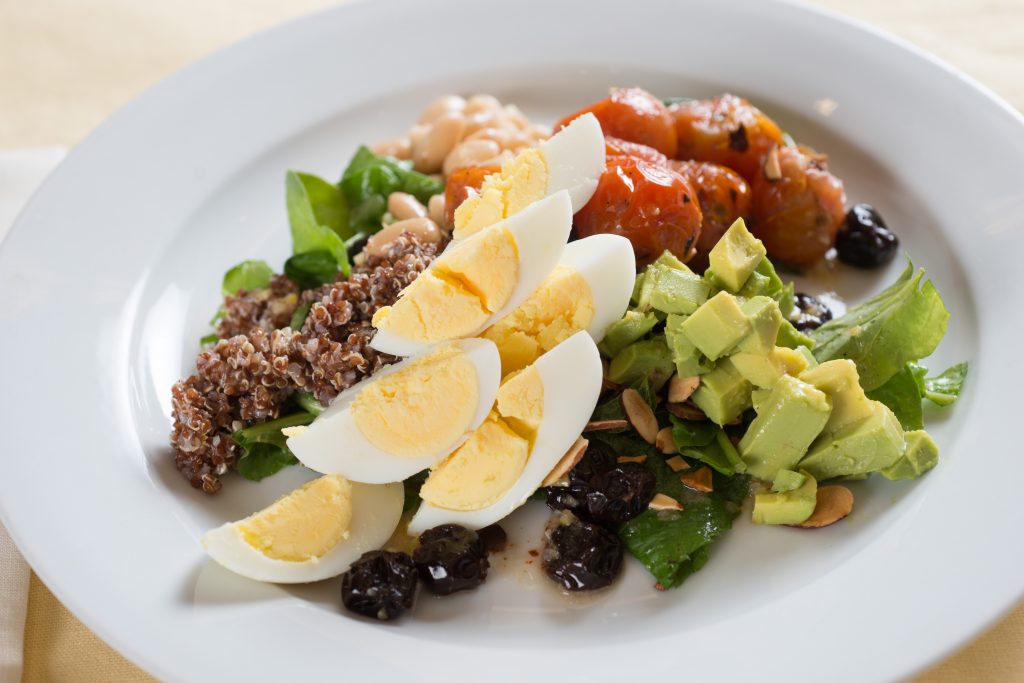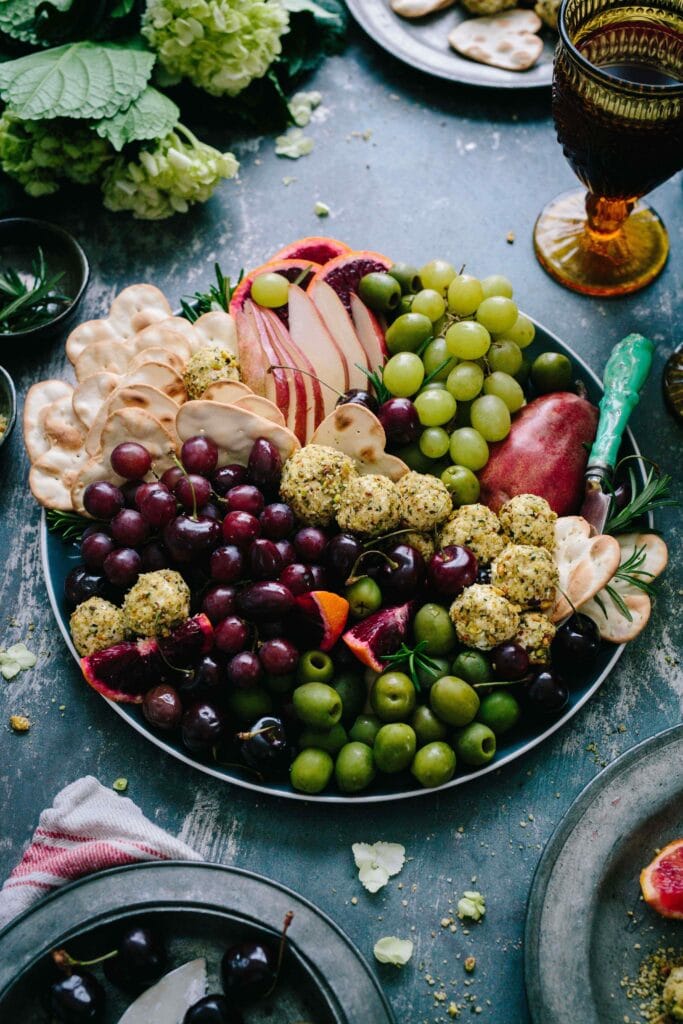Why Your Blood Sugar is Chaotic + The Best Thing to Do Now
With so many factors affecting blood glucose levels, it’s not always your fault when your meter flashes a number you don’t like. Learn what you can control, what you can’t and how to frame the disappointment.
Your blood sugar meter flashes 246! You failed. Again.
Your head drops into your hands as you sit down and swallow hard to get rid of that lump in your throat. You hold in the words “How could my blood sugar be bad again,” but they reverberate inside your head anyway.
If you feel guilt or shame when you “fail the blood sugar test,” you’re not alone.
But what if I told you your blood sugar number is as guilt-free as the number on your speedometer or your meat thermometer?
What are the factors affecting blood glucose levels?
Nowhere in this list will you find the strength of your character affects your blood sugar levels.
In fact, blood sugar numbers are not good or bad. They’re information or feedback telling you if you need a course correction or if you should continue your plan. When my meat thermometer registers 135°F, I put my turkey back in the oven. When my speedometer inches above the limit, I lift my foot off the gas. Neither the thermometer nor the speedometer indicates anything about how good of a person I am. But they do tell me if it’s time for a course correction.
Your blood sugar meter and the numbers it shows you are feedback. They are not good or bad grades.

He’s on the trail of something when he realizes he needs a course correction. So off he goes in a different direction. /© Can Stock Photo / gsagi
If your blood sugar number is within your target range: do nothing
If your number is outside your target range: make a course correction
How food affects blood glucose levels
You have lots of control over what you eat, so shouldn’t you keep those blood sugars in range all the time? It’s just not that simple. Here’s why:
- Carbohydrate amount: The amount of carbohydrate you eat affects your blood sugar levels more than other diet factors. When you eat a lot of carbohydrate, your blood sugar jumps more than when you eat only a little.
- Carbohydrate type: Fiber is a carbohydrate, but it has no direct effect on blood glucose numbers. In fact, high-fiber foods are especially good for people with diabetes.
- Food form: Liquids typically release their glucose faster than solids. Imagine drinking a 4-ounce glass of orange juice or eating a small orange the size of a tennis ball. Both have about 15 grams of carbohydrate, but the OJ will probably spike your sugar more because it’s quickly absorbed. You probably swallowed that juice in only a few seconds too.
- Fat: High-fat meals can make you more resistant to insulin. So watch out if you eat pizza, a greasy burger with fries, or a jar of peanut butter. (Peanut butter is a Jill fave!) Unhealthy saturated and trans fats are more worrisome, but too much of any fat can make your body more stubborn to the effects of insulin.
- Meal and snack timing: Grazers beware! Diabetes or not, blood sugar levels rise after eating and drop some time later. But what if you snack soon after eating a meal? If your blood sugar didn’t return to pre-eating levels when you feed it again, it climbs higher.

Be careful not to eat too many snacks – even healthy snacks! Eating too frequently can keep your blood sugar elevated.
- Alcohol: If your medication has hypoglycemia (low blood sugar) as a side effect, drinking alcohol can push your numbers down extra far. Normally, your liver keeps a close watch on your blood sugar level and releases liver glucose when your blood needs it. But when the liver is busy processing wine, beer or tequila, it’s not so mindful of your blood glucose levels. The result: hypoglycemia. Always eat carb-containing foods when you drink alcohol. And talk to your healthcare provider about the safe use of alcohol when you have diabetes. Alcohol can cause hypoglycemia many hours after drinking.
- Other food factors: Among other factors, the ripeness of fruit, the acidity of your meal, the size and composition of your meal, and caffeine affect blood sugar numbers.
There’s a lot to know about a diabetes diet? Grab The Beginner’s Guide to What to Eat with Type 2 Diabetes to end the confusion, guilt and worry.
How physical activity affects blood glucose levels
If you haven’t already, embrace movement for all it offers: weight and blood sugar control, mood booster, sleep aide, bone health, heart health and on and on.
- Intensity: Light and moderate activities, such as an easy walk, yoga class or doing the waltz with a broomstick in your living room, tend to lower blood sugar levels. Jogging and biking too. Higher-intensity activities like running might lower or raise blood sugar. Sprints and heavy weight lifting may also boost glucose levels. Imagine a bear is chasing you. YIKES! Hormones respond because your body needs an extra burst of glucose to keep you alert, fast and alive. A similar reaction can occur with very intense exercise. Monitor your blood glucose response to various exercises, so you can anticipate what will happen.
- Duration: Typically, the longer you exercise, the greater the drop in blood sugar.
- Frequency: Evey time you move, you do your body good. Each bout of exercise improves insulin resistance, which may last for two hours or even two days! The more regularly you exercise, the longer-lasting the effects on insulin sensitivity and the greater the reduction of your blood sugar levels.
- Fitness level: As you become more fit, expect the effects of exercise to change.

Checking your blood glucose levels before and after eating and before and after exercise will teach you a lot.
How your medications affect blood glucose levels
Both your diabetes medications and other medications impact your numbers.
- Dose of diabetes medications: Usually, the higher the dose, the greater the blood glucose lowering. If your dose is too high, you may experience hypoglycemia. And if it’s too low, your blood sugar levels may rise too high (hyperglycemia). Unless you’re a pharmacist, physician or other prescriber, do not play around with your drugs unsupervised. Scary things can happen, so call your healthcare provider before making changes. One client reacted badly to cutting her pill in half. She didn’t know she’d destroyed the time-release coating with a knife. Instead of getting a slow release of drug, her broken pill dumped out all the drug at once.
- Medication timing: Some diabetes medications work differently depending on when you take them. Whether or not you should take your insulin before, during or after your meal, for example, has to do with the type of insulin and perhaps even the food on your plate. Ask your pharmacist when to take your medications.
- Non-diabetes medications: Steroids, like prednisone, wreak havoc on blood sugar levels. I don’t have diabetes and my numbers flew sky-high while taking prednisone. For the first time, I truly understood what my clients meant when they said they were afraid to eat. Many medications affect blood sugar levels, and some interact with your diabetes medications. That’s another conversation to have with your pharmacist.

High in the sky is fun when you’re jumping on a trampoline. Not so much fun when we’re talking about blood glucose levels. © Can Stock Photo / barsik
How personal factors affect your blood glucose
You have no control over some of these things.
- Insulin sensitivity: Each person responds uniquely to the same amount of insulin. If you are very insulin sensitive, whether that insulin comes from your pancreas or from a vial on your dresser, carbohydrate will raise your blood glucose less than for someone who is less sensitive or more insulin resistant. But guess what? Talk about complicating things, your insulin sensitivity varies throughout the day. You may find you manage your blood sugar levels with 45 grams of carbohydrate for breakfast and lunch, but 45 grams at dinner shoot your numbers over 200.
- Menstruation: Lots of women complain about up and down blood sugars during or before their periods. Shifts in hormones are often the culprit. And chocolate cravings don’t help.

When you give into chocolate cravings, choose a small portion of something you LOVE!
- Too little sleep: Say no to late nights and early mornings! Short sleeping is a form of physical stress that makes us more insulin resistant. Here are 5 ways too little sleep affects blood glucose levels.
- Illness: Struggling with the flu, allergies or a broken leg is another form of physical stress that leads to bursts of hormones, making you more insulin resistant.
- Gut bacteria: The 3 pounds of bacteria in our guts work around the clock making vitamins, fermenting fiber and influencing blood glucose levels. We each carry a unique mix of gut bacteria, so we have different blood glucose responses too. Learn how to feed your gut bacteria.
Here’s what to do now if your blood sugar number is out of range
With so many factors affecting blood glucose levels, you have lots to juggle. Do you see how an out-of-range number isn’t simply your fault? You’re neither a failure nor a victim, but you do have a job to do.
In the short term, if your blood glucose is too low, treat your hypoglycemia. Use these guidelines from the American Diabetes Association. Take a walk if your numbers are a little high.
In the long term, work with your healthcare provider, registered dietitian nutritionist and diabetes educator to systematically change your treatment plan. You may need a different medication or a different dose or timing of your current medication. Perhaps changing the timing of your exercise will prevent hypoglycemia or shifting the timing of your snack will prevent hyperglycemia. If you don’t already work with a dietitian or a diabetes educator, ask your provider for a referral.
What to do when you think you’ve failed
Remind yourself of these facts:
- People without diabetes don’t have to deal with any of these factors affecting blood glucose levels, so every step you make is worth celebrating.
- Your blood sugar is just a number. It’s not a statement of your character.
Next time you see a blood sugar number out of range, don’t treat yourself with any less respect than I treated my under-cooked turkey. It’s feedback, indicating whether or not you need a course correction.
Want to feel confident about your diabetes diet? Grab The Beginner’s Guide to What to Eat with Type 2 Diabetes. Read the lessons and use the worksheets at your own pace.
End the Confusion & Frustration of What to Eat for Type 2 Diabetes
Filed Under: Diabetes, Mindset
Tagged: blood sugar, carbohydrate, exercise, medications
Jill Weisenberger
I'm Jill, and I believe simple changes in your mindset and health habits can bring life-changing rewards. And I don't believe in willpower. It's waaaay overrated. As a food-loving registered dietitian nutritionist, certified diabetes care and education specialist and certified health and wellness coach, I've helped thousands of people solve their food and nutrition problems. If you're looking for a better way to master this whole healthy eating/healthy living thing or if you're trying to prevent or manage diabetes or heart problems, you'll find plenty of resources right here.
Leave a Reply
4 Comments
Leave a Comment
Welcome to my Blog
Hi there! I'm Jill, a nutrition & diabetes expert and the author of 4 books.

I believe simple changes in health habits can bring you life-changing rewards.
And I believe willpower is way overrated.
Right here is where you can discover the mindset and habits to stick with healthy lifestyle choices most of the time - and drop the guilt when you don't.
Get the Second Edition!

Featured Posts










I landed up on your blog from Google. Thanks for sharing this article. Looking forward to reading more from you.
Glad you’re here. Let me know what you struggle with most. It helps me know what to write about.
That was a lot of information to soak in. But so far one of the most well-written articles on the topic. Can you maybe write a detailed one on how to keep blood glucose levels in control after being diagnosed. Would love to read more articles written by you on this topic.
Thank you! Yes, I’ll continue to write on this topic. Here’s one you can learn from – Learn how food affects your blood sugar.